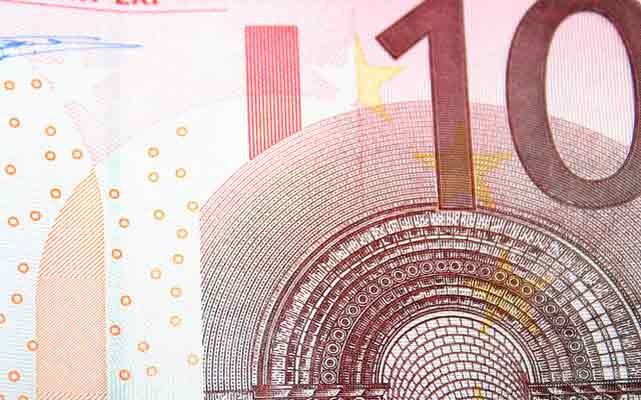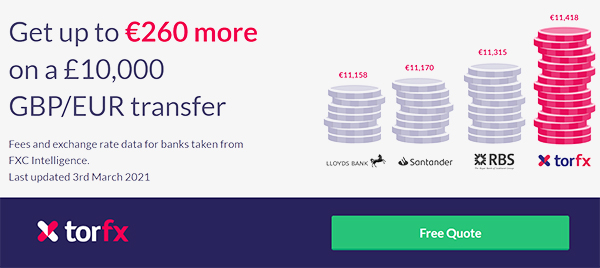Pound to Euro Forecast: GBP Underperforms on UK Tax Hike Fears
- Written by
Tim Boyer

The Pound Sterling has remained on the defensive in global markets with the Pound to Euro exchange rate (GBP/EUR) retreating to near 1.1467.
Domestically, a very negative business confidence survey grabbed the headlines, although the overall evidence was mixed with a rival survey at a 9-year high.
The extreme divergence will cause significant confusion and cause headaches for the Bank of England, but traders put greater weight on the negatives at this stage.
Equity markets posted significant losses amid fresh unease surrounding US tariffs and the wider trade policy.
The more vulnerable risk tone unsettled the Pound in global markets with markets uneasy over the global economic implications amid fears of a re-run of April turmoil.
The IoD business confidence index plunged to a record low of -72% for July from -53% the previous month.
According to IoD chief economist Anna Leach; “Last year, damaging speculation around tax rises in the lead-up to the 2024 Budget caused many firms to pause investment and hiring decisions, contributing to six months of near-zero economic growth. We’re now living with the economic consequences of those tax hikes, even as uncertainty around future costs once again builds.

She added; “With ripple effects through the economy from tax changes and signs of consumer retrenchment, many firms report that they are struggling to plan amid a cacophony of risk.”
In contrast, the Lloyds Bank business barometer confidence index edged higher to 52% for July from 51% previously and the strongest reading since 2015.
The services sector was significantly more confident, but this was offset by weaker confidence in all other sectors.
There was a marginal easing in inflation pressures, but planned price increases remained well above the long-term average.
Hann-Ju Ho, senior economist for Lloyds Commercial Banking, was broadly positive on the outlook; “This continued upward trend reflects a growing sense of cautious optimism across the UK economy, underpinned by both improved trading prospects and broader economic sentiment.
She added; “Despite ongoing cost pressures, firms are positioning for growth, particularly in services where hiring and investment plans are accelerating.”
The UK PMI manufacturing business confidence index was revised slightly lower to 48.0 in the final reading from the flash reading of 48.2, although this was a six-month high for the index.
Rob Dobson, Director at S&P Global Market Intelligence commented; “The UK manufacturing sector is starting to send some tentatively encouraging signals, with the downturn moderating in July as factory output came close to stabilising and future output expectations hit the highest since February. “However, it’s clear that there’s no assured path back to strong growth.”
Euro-Zone headline inflation held at 2.0% for July, marginally above expectations of 1.9% while the core rate held at 2.3% with little Euro impact.
STORY LINK Pound to Euro Forecast: GBP Underperforms on UK Tax Hike Fears

The Pound Sterling has remained on the defensive in global markets with the Pound to Euro exchange rate (GBP/EUR) retreating to near 1.1467.
Domestically, a very negative business confidence survey grabbed the headlines, although the overall evidence was mixed with a rival survey at a 9-year high.
The extreme divergence will cause significant confusion and cause headaches for the Bank of England, but traders put greater weight on the negatives at this stage.
Equity markets posted significant losses amid fresh unease surrounding US tariffs and the wider trade policy.
The more vulnerable risk tone unsettled the Pound in global markets with markets uneasy over the global economic implications amid fears of a re-run of April turmoil.
The IoD business confidence index plunged to a record low of -72% for July from -53% the previous month.
According to IoD chief economist Anna Leach; “Last year, damaging speculation around tax rises in the lead-up to the 2024 Budget caused many firms to pause investment and hiring decisions, contributing to six months of near-zero economic growth. We’re now living with the economic consequences of those tax hikes, even as uncertainty around future costs once again builds.

She added; “With ripple effects through the economy from tax changes and signs of consumer retrenchment, many firms report that they are struggling to plan amid a cacophony of risk.”
In contrast, the Lloyds Bank business barometer confidence index edged higher to 52% for July from 51% previously and the strongest reading since 2015.
The services sector was significantly more confident, but this was offset by weaker confidence in all other sectors.
There was a marginal easing in inflation pressures, but planned price increases remained well above the long-term average.
Hann-Ju Ho, senior economist for Lloyds Commercial Banking, was broadly positive on the outlook; “This continued upward trend reflects a growing sense of cautious optimism across the UK economy, underpinned by both improved trading prospects and broader economic sentiment.
She added; “Despite ongoing cost pressures, firms are positioning for growth, particularly in services where hiring and investment plans are accelerating.”
The UK PMI manufacturing business confidence index was revised slightly lower to 48.0 in the final reading from the flash reading of 48.2, although this was a six-month high for the index.
Rob Dobson, Director at S&P Global Market Intelligence commented; “The UK manufacturing sector is starting to send some tentatively encouraging signals, with the downturn moderating in July as factory output came close to stabilising and future output expectations hit the highest since February. “However, it’s clear that there’s no assured path back to strong growth.”
Euro-Zone headline inflation held at 2.0% for July, marginally above expectations of 1.9% while the core rate held at 2.3% with little Euro impact.
International Money Transfer? Ask our resident FX expert a money transfer question or try John's new, free, no-obligation personal service! ,where he helps every step of the way, ensuring you get the best exchange rates on your currency requirements.
Comments are currrently disabled
Related Stories:
- Pound to Euro Pressured by Westminster Uncertainty - December 8, 2025
- Pound to Euro: Consensus Bank Forecasts Point to GBP/EUR Near 1.13 - November 22, 2025
- British Pound to Euro Forecast: GBP/EUR Capped Below 1.1400 - November 10, 2025
- Euro to Dollar Near-Term Forecast: "Risks Tilted Toward Further USD Strength" - October 27, 2025
- Pound to Dollar Forecast: Focus Turns to Fed, UK Budget - October 26, 2025
- Pound to Euro Forecast: GBP Falls Below 1.15 EUR as Banking Fears Rock Markets - October 19, 2025
- British Pound to Euro Forecast: Why This Bank Sets Target of 1.1360 - October 15, 2025
- Pound to Dollar Bank Forecast: HSBC and ING Bearish, Scotiabank Turns Bullish - October 13, 2025
- Pound to Euro Week Ahead Forecast: Near-Term Losses, Potential 2026 Rebound - October 6, 2025
Latest News:
- Euro to Dollar Forecast: EUR/USD Near 1.18 as Fed Uncertainty Dominates - December 15, 2025
- Pound-to-Dollar Forecast: Can GBP/USD Break Out of the 1.33 Range? - December 15, 2025
- British Pound to Euro Forecast: GBP/EUR Softens as BoE Cut Fully Priced - December 15, 2025
- Pound Sterling Slides Against Euro and Dollar After Fresh UK GDP Contraction - December 14, 2025
- Pound-to-Euro Forecast: GBP Lags EUR as Yield Spreads Narrow - December 12, 2025
- British Pound to Dollar Forecast: GBP/USD Holds 1.34 Despite UK Recession Fears - December 12, 2025
- Pound-to-Euro Retreats Slips as Fed Dovish Shift Lifts EUR - December 11, 2025
- GBP to USD Forecast: Pound Sterling Softens on UK Economic Concerns - December 11, 2025
- Euro to Dollar Forecast: EUR/USD Jumps to 7-Week Best as Fed Divisions Deepen - December 11, 2025
- Pound-to-Euro Forecast: GBP Eases with Tight BoE Vote Near-Term Risk - December 11, 2025









